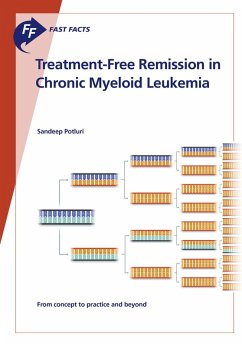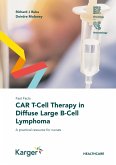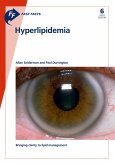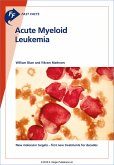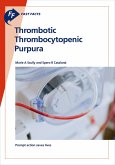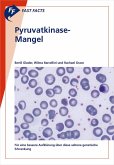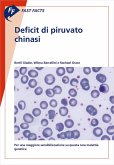The tyrosine kinase inhibitor (TKI) imatinib was the first treatment to specifically target cancer cells, rather than the relatively indiscriminate effects of conventional chemotherapy on any rapidly dividing cells. This concept of targeted treatment in cancer is one of the important advances in modern medicine in the last 30 years. Indeed, treatment with TKIs has transformed chronic myeloid leukemia (CML) from a cancer with a poor prognosis to one in which many patients can expect a normal lifespan. Success with the TKIs has prompted the question of whether it is desirable - or feasible - for patients to remain on treatment for long periods. While the TKIs are targeted, they are associated with considerable toxicity, and long-term treatment has important economic implications for health services and patients. Thus, the concept of treatment-free remission (TFR) has emerged for patients in deep clinical remission. Clinical research over the last decade has focused on whether treatment can be stopped, how to best monitor patients while off treatment, and how to intervene before a clinical relapse. As this research progresses, the tantalizing prospect of a cure for some patients seems increasingly feasible. This new Fast Facts title outlines this trail-blazing approach to the long-term management of patients living with CML in remission. It explains the concepts of molecular and hematologic relapse, the highly sensitive technologies that allow disease monitoring, and how TFR is best managed in practice. It is a concise educational resource, ideal for any healthcare professional involved in the treatment of patients with CML who wants to understand TFR, particularly clinical nurse specialists and pharmacists who increasingly help clinicians to run CML clinics. Table of Contents: • The concept of treatment-free remission • Measurement of disease burden • Clinical practice • Future directions
Dieser Download kann aus rechtlichen Gründen nur mit Rechnungsadresse in A, B, BG, CY, CZ, D, DK, EW, E, FIN, F, GR, HR, H, IRL, I, LT, L, LR, M, NL, PL, P, R, S, SLO, SK ausgeliefert werden.

